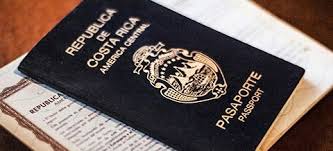
Did you know that Americans living in the stunningly beautiful country of Costa Rica must still file a US tax return each year?
You’ll also need to be aware of the tax laws of Costa Rica. To help you better understand your US and Costa Rican tax obligations, we have outlined here the top 10 things you need to know!
1. Filing Deadlines
The US tax year is different than Costa Rica’s. The US tax year runs January to December, with US resident returns due in April and US expat tax returns due June 15. In Costa Rica, the tax year is October 1 to September 30 and your return must be filed by February 15 each year. You can request an extension on your US expat taxes until October 15 if you need more time to file.
2.Residency
After you have lived here for 6 months, you are considered a resident. As far as employment income tax, residency status is irrelevant—residents and non-residents pay the same rate.
3.Income Taxation
The US is one of the few countries who taxes its citizens on their worldwide income, regardless of where they live. Costa Rica, however, only taxes you on the income you earn in the country, even if you are not yet considered a resident. Costa Rica is known for its wonderfully low tax rates and taxes at a progressive rate based on income and type of income. Here are the rates for salaried employees for 2013:
| ||||||||||||
And here are the 2013 rates for self-employed workers:
| Tax Year 2013 | Income Earned | Tax Rate |
| Up To | ¢3.171.000 | Exempt |
| From | ¢3.171.000 up to ¢4.735.000 | 10% |
| From | ¢4.735.000 up to ¢7.898.000 | 15% |
| From | ¢7.898.000 up to ¢15.827.000 | 20% |
| Above | ¢15.827.000 | 25% |
4. Social Security
Employees in Costa Rica contribute 9.17% of their earning to the Costa Rican social security system. Unfortunately, the US and Costa Rica don’t have a totalization agreement which would allow you to pay into only one social security system at a time. As a result, you will need to pay into both systems so long as you remain a US citizen.
5. Capital gains and sales tax
One of the reasons Costa Rica is such a popular investment region is the beauty of no capital gains tax! There is a 13% sales tax on most items, but certain foods and medicinal products are exempt from that tax.
6. FBAR
If you haven’t heard of FBAR, it’s time to get acquainted! FBAR, Foreign Bank Account Report, is required if you have $10,000 or more in your foreign bank accounts at any point during the US tax year. This is filed electronically to the Treasury Department each year by June 30 and there are no extensions.
7. FATCA
The Foreign Account Tax Compliance Act (FATCA) is making global headlines. As of July 1, 2014, foreign financial institutions are required to report on the accounts of their American clients as part of the US initiative to uncover tax cheats. If you have specified foreign financial assets that exceed certain thresholds, you are required to file Form 8938 (which you would send with your regular tax return to the IRS).
8. Foreign Earned Income Exclusion
One of the best ways to lower your US tax obligation is with the Foreign Earned Income Exclusion. Once you qualify as an expat, you can deduct your first $99,200 of earned income from your US tax liability.
9) Qualifying as an ex-pat
You can qualify as a US ex-pat if you pass one of two residency tests: the Physical Presence Test or the Bona Fide Residence Test. With the Physical Presence Test, you must be present in a foreign country for 330 of any 365-day period. The other test, the Bona Fide Residence test, requires you to live in a foreign country for at least one year and have no immediate plans to return to the US.
10. Get caught up on your US taxes
If you haven’t been filing American expat tax returns while living in Costa Rica, it’s time to do so! The IRS made some major changes to its amnesty program, the Streamlined Filing Procedures, which allows you to get caught up by filing the last three years of tax returns and the last six years of FBARs (if required). The best part? They have waived all late filing and FBAR penalties so unless you owe taxes for the years you didn’t file, you won’t be paying any additional money to the IRS.
[quote_box_center]David McKeegan is the Co-Founder of Greenback Tax Services, which specializes in the preparation of US expat taxes for Americans living abroad. Greenback offers straightforward pricing, a simple, hassle-free process, and CPAs and IRS Enrolled Agents who have extensive experience in the field of expat tax preparation. Please send your questions to [email protected].[/quote_box_center]

